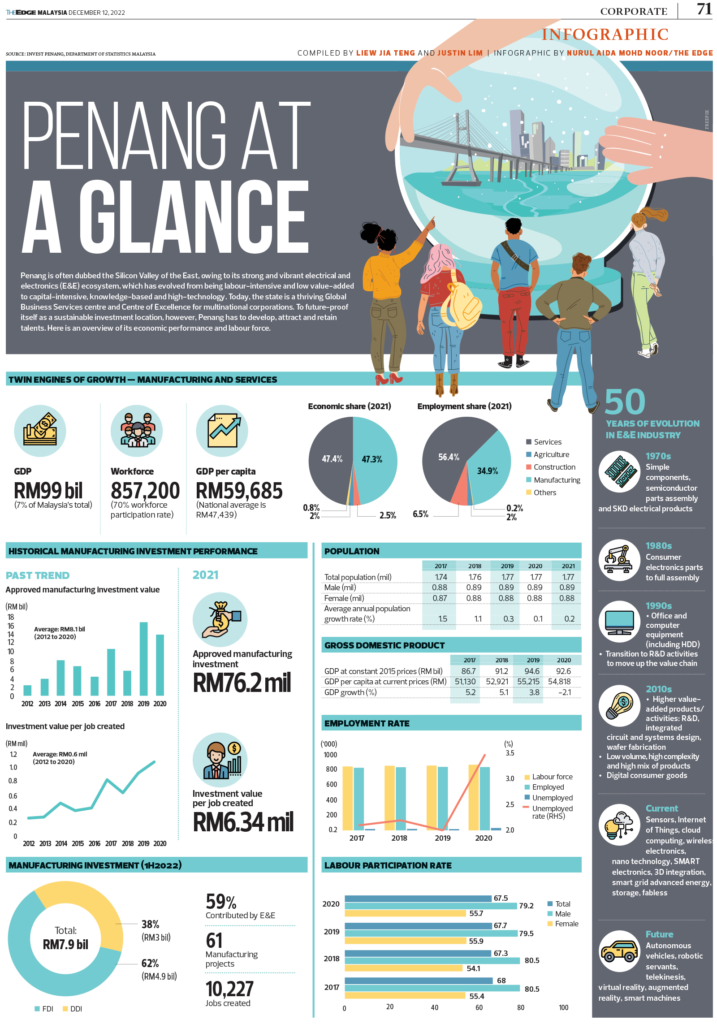Malaysia is always at the forefront of digitalisation and is continuing its pioneering role with the recently launched Malaysia Digital initiative – aimed at driving rapid digital adoption throughout the economy, especially among key industries.
This drive is further bolstered by Digital Catalytic Programmes targeting to take the nation to the Industry 4.0 age, with applications like Big Data, Artificial Intelligence (AI) and the Internet of Things (IoT) improving operations and enhancing sustainability practices in key sectors such as oil & gas, agriculture and manufacturing. These applications are already being deployed through the Industry4WRD initiative, in anticipation of the impending national rollout of the 5G network, to further catalyse Malaysia’s prosperous digital future.
At the centre of it all are the country’s communication service providers (CSPs), which are crucial in supporting the rollout of robust, high-performance private wireless networks.
Deploying smart solutions via private wireless networks
With its digital-first initiatives, Malaysia’s key industries are accelerating their digitisation, which are being realised via smart operations, usage of Industry 4.0 applications and business facility development.
Malaysia’s leading industries must undergo digitisation in this critical period. The oil & gas sector is one of the country’s leading industries, but it has to weather volatile periods as energy demands fluctuate according to changing global events. Hence, there is a need to stay on top of these changes through digital transformation. Meanwhile, smarter factory operations can help Malaysia’s manufacturing sector reinforce its position as a key global supply chain hub, especially for electronic chips and rubber products. Also, with the country shifting its focus towards growing its agriculture sector due to food insecurity concerns, AgriTech is being prioritised to yield better crops using today’s technology.
These industries must maintain their competitive value by embracing Industry 4.0 applications delivered through private wireless networks. Such networks have the performance required to facilitate the digitisation of operations, such as helping facilities boost their capabilities via remote diagnostics, alongside harnessing artificial intelligence and machine learning (AI/ML) to sense operational faults.
However, the pertinent challenges within the current network technologies landscape are high fragmentation, lack of flexibility and dependability as well as inability to provide high-bandwidth connectivity. This is where private wireless networks can be game-changing, as they use dedicated equipment and services for a specific enterprise, site or geographic area. This can help solve many of the challenges of current networks cost-effectively, while also enabling new, higher-value applications.
The 5G difference
Adding the 5G connectivity layer atop private wireless networks can make a significant difference in digital operations. 5G provides the speed, security and reliability required to drive new processes – raising the bar for efficiency and operational throughput, in addition to enhancing collaboration, worker safety and remote expert support as well as optimising maintenance through proactive and predictive models.
5G’s rollout will be particularly transformative for Malaysia’s key industries. It can enable the collection of real-time data which will be critical in providing operators with informed, data-driven decision-making, minimising dependency on wired technologies, leading to smart and less faulty processes. This is because 5G provides ultra-reliable and low-latency system designs, allowing for seamless communication between people, machines and sensors without losing data integrity.
Therefore, Malaysia’s key industries can benefit from 5G-enhanced private wireless. For manufacturing, private wireless networks help manufacturers collect, use and host their data on-site so that the collected data can be transmitted safely and enable the network to run efficiently. Factories can utilise a multitude of 5G-enabled technologies like edge computing, big data, and IoT through private wireless networks so that they can have larger-scale automation to ensure their operations run autonomously and self-correct. They can also run diagnoses of their machinery to determine which device is close to malfunctioning, allowing them to proactively conduct maintenance and repairs.
For the oil & gas sector, as oil rigs in Malaysia often operate offshore, critical communications between the oil rig platform and the operations centre must be maintained to monitor core operations and extraction processes. Installing a private wireless network will ensure seamless connectivity for communications between the centre and the oil rig platform with no lag or downtime. Private wireless networks also allow for digitalised and automated pipeline engineering solutions, with data being organised and transferred within the company’s operations, smoothening the process and allowing the network to run more efficiently.
Meanwhile, Malaysia’s agriculture sector, especially through initiatives such as the eLadang programme, can utilise Industry 4.0 applications like data analytics and AI. This helps to better analyse crops and determine smarter solutions to mitigate situations that affect crop production such as extreme weather conditions. Moreover, farmers can use automated robots or drones to assist in labour-intensive work like planting, watering crops, distributing fertilizer and harvesting. This allows them to focus on quality control and smarter farm management, opening opportunities to use digital solutions to improve food production.
CSPs leading the way to transform key industries
Malaysia is setting its sights on prioritising the digital transformation of its key industries, both digital and physical, to reach greater heights. For these to happen, CSPs will play a leading role in ensuring sufficient network connectivity to propel the industries forward, which will drive the country’s economic growth.
Beyond that, CSPs can also explore how 5G can enhance the development and harness more advanced applications for its key sectors to move forward. This will help ensure a smoother transition towards using more Industry 4.0 tools, transforming their operations to remain competitive and relevant in today’s digital era.
Datuk Mohd Rauf Nasir is Managing Director of Malaysia, Sri Lanka & Maldives, Nokia.
Source: Bernama
Driving Malaysia’s Key Industries Forward With Private Wireless Networks And 5G
Content Type:
Duration:



